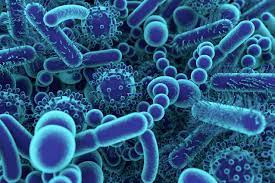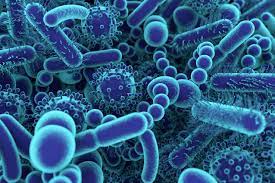Endowed Fund for Gastroenterology Research in Honor of Dr. Sum Ping Lee
Chung Nung and Bik Lam Lee honored our division by giving a transformational gift. Their $1 million commitment will provide support for research in the Division of Gastroenterology, particularly research focused on liver diseases.
This gift was made in honor of Dr. Sum Ping Lee for his contributions to the research of liver disease and his leadership as a physician-educator-scientist in medicine. Dr. Lee is a professor emeritus at UW and served as division head for the Division of Gastroenterology from 1995-2008. Dr. Lee’s impact on our division cannot be understated and we are grateful for this gift honoring his leadership and legacy.
to the research of liver disease and his leadership as a physician-educator-scientist in medicine. Dr. Lee is a professor emeritus at UW and served as division head for the Division of Gastroenterology from 1995-2008. Dr. Lee’s impact on our division cannot be understated and we are grateful for this gift honoring his leadership and legacy.
Join Us in supporting UW Gastroenterology Research
We invite you to join in contributing to the Lee Endowment.
This endowment will support liver disease research within our division. Our faculty are at the forefront of diagnosing and treating patients with chronic liver diseases, advancing our understanding of transplant management, and basic, translational and clinical research in liver diseases.
We are leaders in developing and implementing innovative clinical technologies, including pioneering endoscopic techniques, launching Hepatitis C cures, designing the first-ever “liver dialysis” platform, and developing the first-ever blood test for colorectal cancer diagnosis.
Thank you for your interest in our research and thank you for joining us in celebrating our 75th anniversary and the legacy of Dr. Sum Lee.
UW GI research leaders
UW GI faculty lead research across our division, including UWMC, FHCC, and the VA. Our investigators are pushing the bounds of innovation and are at the frontier of scientific discovery for luminal GI, hepatic and pancreaticobiliary diseases. Our division has approximately $8.4 million in research funding. In addition, our VA faculty lead projects totaling over $70 million in budget for the study durations.
We believe, along with our partners, that we will dramatically push forward the frontiers of scientific discovery and patient care, and we will be able to detect GI cancers at their precursor stages and intervene so that they may be prevented or cured. We aim to offer cutting-edge treatment for GI cancers, resulting in superior outcomes.
Digestive diseases on the rise
Gastrointestinal symptoms are among the most frequent complaints that bring a patient into a clinic or hospital. Our research centers will move the needle on advancing care for our patients.
Areas of concern
Gastro-esophageal reflux and chronic inflammatory bowel diseases, such as ulcerative colitis and Crohn’s disease, are often associated with severely impaired quality of life and complications, such as bleeding, obstruction, perforation, or even cancer formation. Hepatitis and liver cirrhosis also cause serious health problems that have life-altering and debilitating effects.
Cancers of the digestive tract, including the pancreas, colon, esophagus, stomach, and liver, are responsible for more than 120,000 deaths in the United States each year.
In some ethnic populations, digestive tract malignancies represent more than 50 percent of all cancer deaths. Most of these deaths are preventable because these cancers are curable if diagnosed early.
Research programs
Biorepository
The Biorepository and Registry form a research core that is actively collecting tissue samples and health information to improve our ability to perform clinically-relevant research.
learn moreColorectal Cancer (CRC)
Our faculty engage in colorectal cancer research related to the discovery of early diagnostic and prognostic biomarkers, epidemiology of CRC, and implementation and population science to eradicate CRC healthcare disparities.
learn moreEsophagitis & Esophageal Cancer
Our faculty have made discoveries that give us insight into the progression of pre-malignant esophageal disease to esophageal cancer and are developing strategies to use these findings in the care and management of patients at risk for esophageal cancer.
learn moreGastrointestinal Motility Disorders
This includes a wide spectrum of disorders, such as difficulty in swallowing, abdominal distention and bloating, and paralysis of the stomach (gastroparesis) or the intestines (pseudoobstruction).
learn moreInflammatory Bowel Diseases & Intestinal Cancer
Research in IBD spans both clinical trials for the discovery of new therapeutics and basic/translational science. Most recently, UW GI investigators have led and contributed to studies investigating the role of biologics in IBD management and are developing methodologies to enhance the holistic care of patients in our Integrative IBD practice, including using nutrition as therapy.
learn moreThe Gut Microbiome
Through philanthropic support, UW GI launched the GI Microbiome Center which serves as a hub of collaboration and connectivity for researchers and clinicians at the University of Washington and its affiliated campuses to advance the understanding of the dynamic interaction between microbes, the microbiome, and the host.
learn moreDiverticular Disease
Research in diverticular disease by our faculty has led to a better understanding of the natural history of diverticular disease and the phenotyping of patients who have diverticular disease. Studies are aimed at helping prevent recurrent episodes of diverticulitis, the most severe outcome of diverticulosis
learn moreLiver Diseases
Our Center for Liver Investigation Fostering discovEry (C-LIFE) is a comprehensive multi-disciplinary Liver Clinical & Translational Research Center. Our faculty are at the forefront of diagnosing and treating patients with chronic liver diseases, advancing our understanding of transplant management, and basic, translational, and clinical research in liver diseases.
learn morePancreatitis & Pancreatic Cancer
Pancreatic cancer is the fourth leading cause of cancer death in the United States. Our faculty helped developed and are engaged in a multidisciplinary surveillance program for the early detection of pancreatic cancer and its precursors in patients with familial predispositions
learn moreOur Goals for Research, Early Diagnosis, and Treatment
We support a multidisciplinary approach to cancer and hepatitis research, diagnosis, and training. We will set a new standard for patient care, research, and education by striving toward the following goals:
- Provide state-of-the-art research in and treatment for hepatitis, inflammatory bowel diseases, and digestive cancers, including their precancerous forms. Developing innovative methods for early detection will allow us to cure more patients.
- Create multi-disciplinary teams of specialists to provide comprehensive treatment for patients. Together, our specialists will assess risk and disease status, and choose appropriate therapeutic interventions.
- Inspire and encourage new, promising research ideas and foster the careers of junior medical scientists. Each year, we will select up to three awardees who will pursue novel, creative investigations in the areas of pathogenesis, diagnosis, and treatment of gastrointestinal diseases.
- Develop a caring, informative counseling program for family members of patients with digestive cancers and other diseases. The program will assess their risks of developing cancer or other digestive diseases, and advise them on appropriate diagnostic procedures and treatment options.
- Strengthen our training and outreach program so that the skills and knowledge gained at the UW Division of Gastroenterology are extended to physicians and researchers in the biomedical community.





